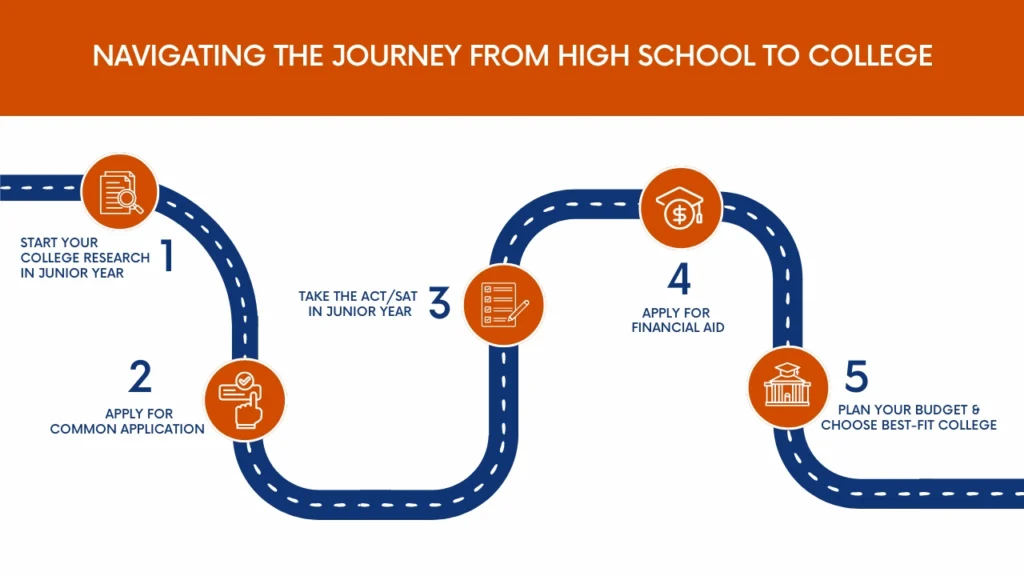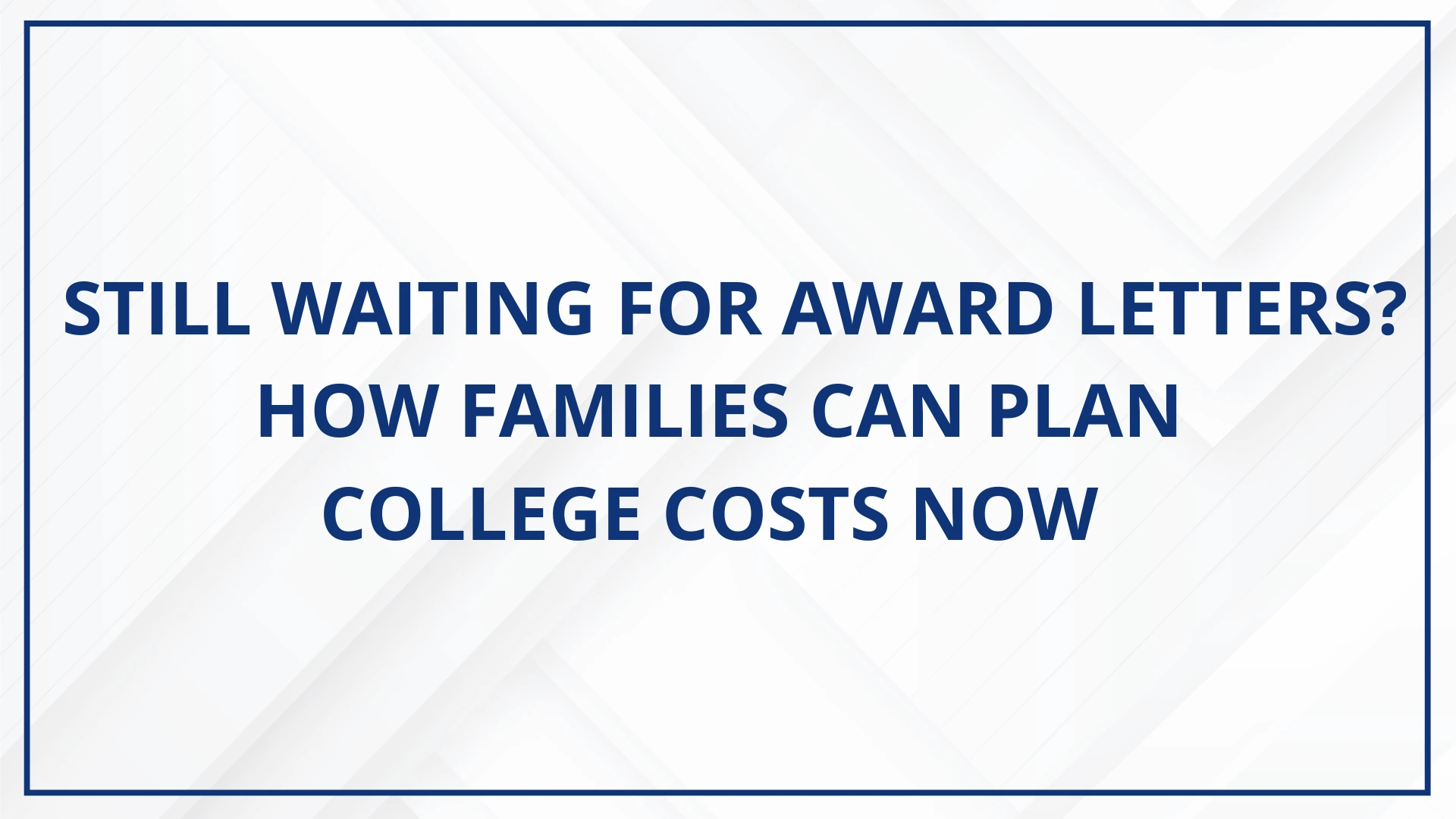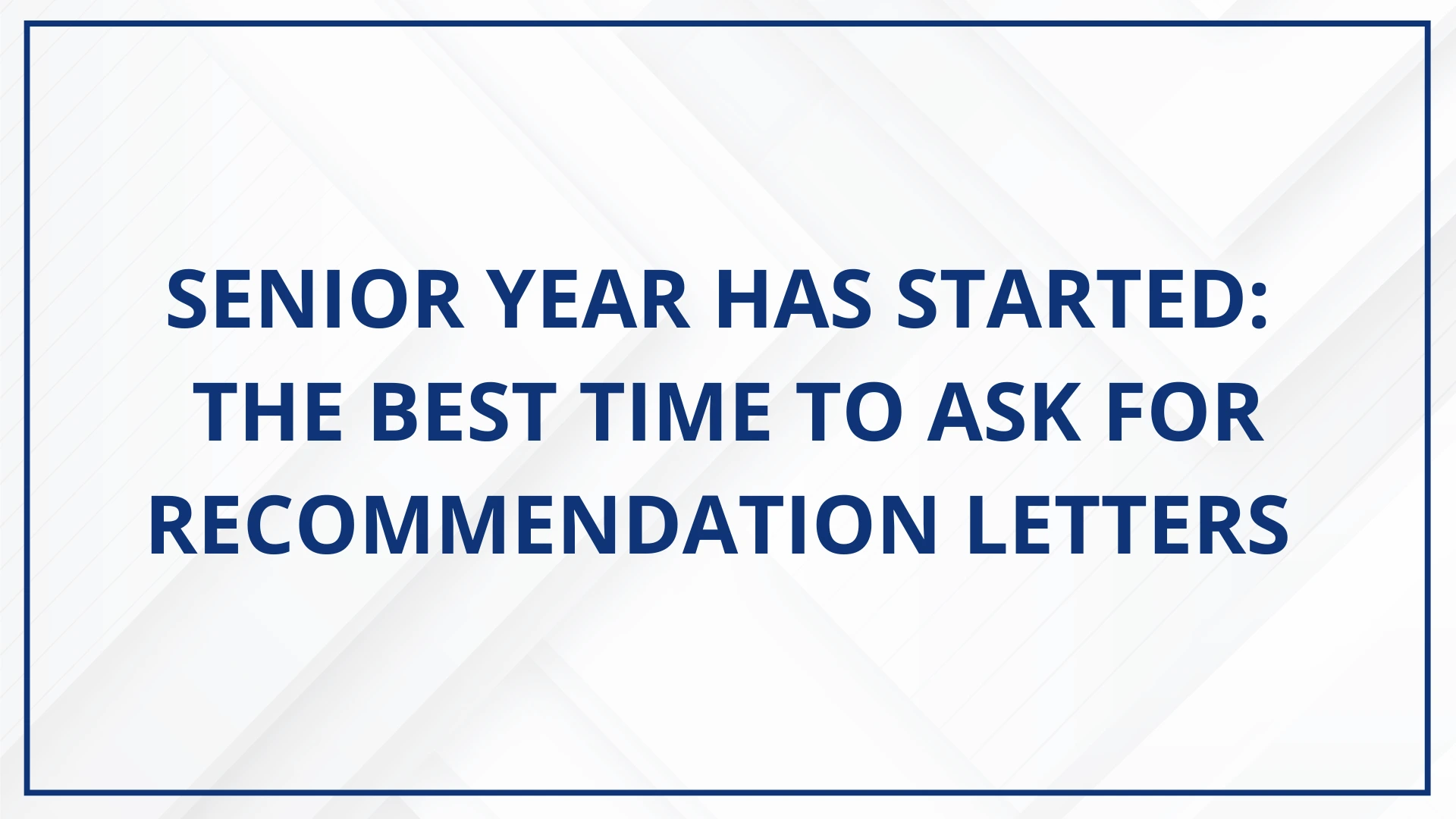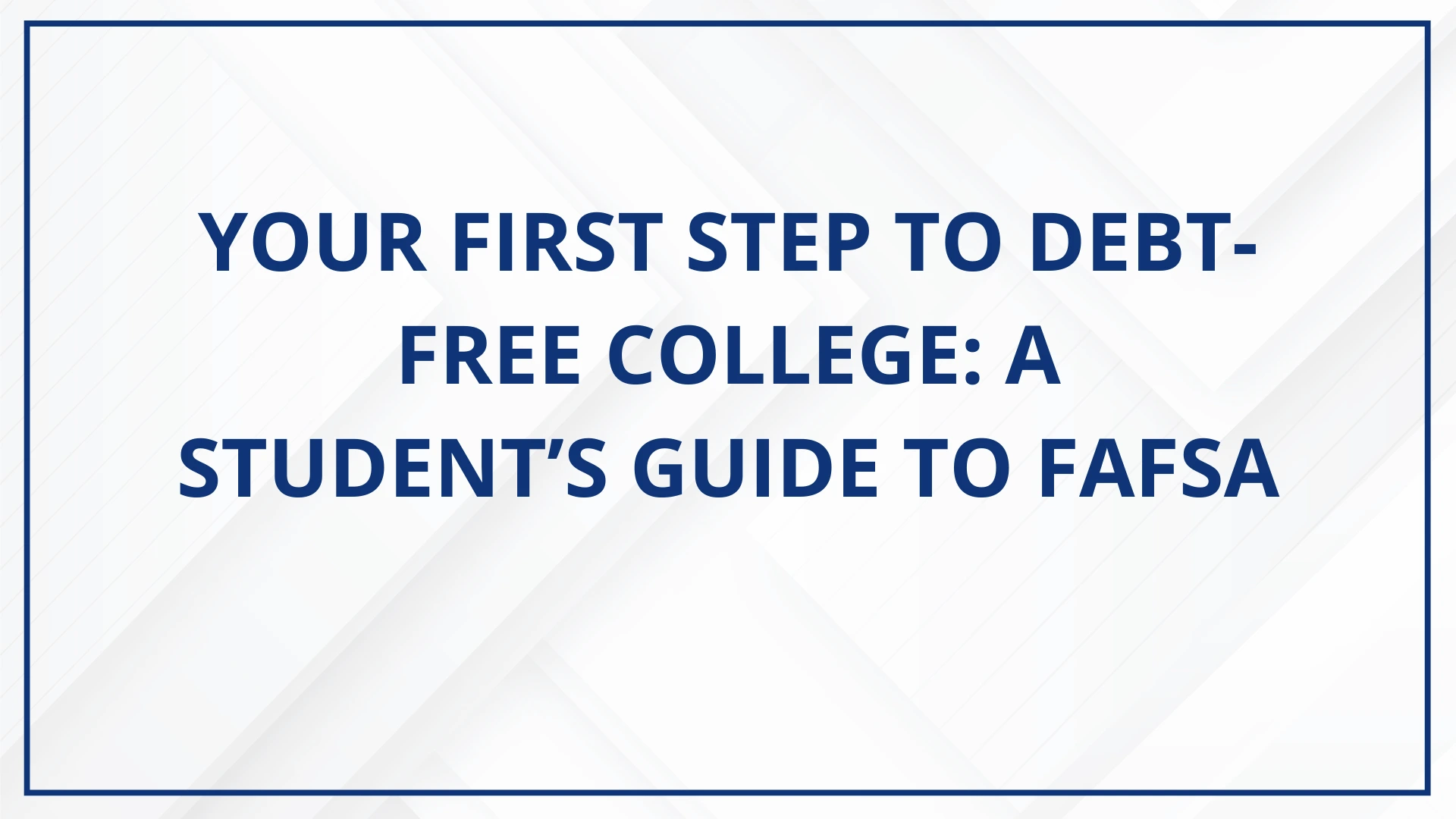Navigating the High School to College Transition: A Comprehensive Guide
The transition from high school to college can feel daunting. From researching schools to writing a personal statement and eventually moving into a dorm, this time takes dedication and persistence. Setting goals and creating a timeline are necessary first steps.
With tips from a recent college freshman, this guide can help reduce stress and create a more seamless transition.
When to Start?
Students should participate in extracurricular activities and take challenging courses throughout high school. With that said, junior year is where this process picks up speed.
The junior year is when college research begins. Many criteria should be considered when looking into potential schools. This includes the size of the college, its location, and the programs offered. Find what matters to you.
Use the summer before senior year to your advantage. This is a great time to visit campuses and start curating your college list. This is also a great time to brainstorm potential college essay topics. Look to the blog “Making the Most of the Summer Before Senior Year” for more detailed information on this crucial time.
Applications open in the fall of the senior year. Different application types have different deadlines. For example, the early decision deadline, which is binding, is earlier than the regular decision. I applied to my current school early because it was my first choice, and I knew the school offered need-based scholarships.
Keep track of application deadlines using a personalized calendar or spreadsheet to stay organized and not miss any dates!

How to Apply?
The Common Application is the most prevalent type and can be sent to multiple schools simultaneously. It opens on August 1st.
The Common Application contains multiple sections where students input their grades, GPA, and test scores. The “activities” section is dedicated to extracurriculars, including sports, clubs, and meaningful experiences outside of the classroom.
The infamous college essay is one section of the personal statement. Most students write about a unique, personal aspect of their lives in the common app essay. It can be a maximum of 650-words.
Supplemental essays are additional writing prompts that are specific to each college. These essays may ask about your major choice or why you like that school in particular. It is important to demonstrate that you have conducted thorough research and have a genuine interest in the school.
You will also need two or three letters of recommendation. Ask important teachers or counselors who know your character. Allow recommenders ample time to draft their letter. I asked one month in advance for letters from my math and journalism teachers, as well as the faculty advisor for my high school’s student leadership club.
Work hard on your application and complete all the necessary steps.
How to Prepare for Tests?
Students take the ACT or SAT in their junior year. Many retake these tests until they receive a score they are pleased with. Check your score against each college’s average to see how you compare to other candidates.
These exams are very similar in most aspects. Both exams assess college readiness, and neither penalizes guessing an answer. However, the ACT is 41 minutes longer, contains a science section, and has an optional essay.
I chose the ACT because it is more prevalent in the Midwest. To study, I purchased “The Official ACT Prep Guide” and found the practice tests to be the most helpful. I submitted my scores to schools where I fell within or above their ACT average score.
Budget Planning
College is expensive–from tuition to dorm rooms to purely living on your own for the first time.
Depending on the college’s requirements, research whether living in a dormitory, off-campus housing, or at home is more reasonable for your budget.
Find used textbooks or online versions to help eliminate the extra cost.
Create a budget or spreadsheet to track your spending habits. I know I spent more money on food, outside of my meal plan, than I thought I would freshman year. A budget is especially important if you plan to take out loans and potentially accrue debt.
Financial Aid
The FAFSA, or Free Application for Federal Student Aid, must be completed to be eligible for financial assistance. Once submitted for senior year, students receive an award letter from each college. You can apply for FAFSA 2024-2025 before June 30, 2025.
The award letter states the financial aid package that matches your family’s Expected Family Contribution, determined by the FAFSA.
This application determines eligibility for work-study jobs. These on-campus positions range from working at the front desk to tasks related to your field of study.
I had a work-study job freshman year within the communications department. My job was interesting, and having some income definitely helped.
Outside Scholarships
There are many additional external scholarships and grants available.
Look for smaller, more specific scholarships where there will be less competition. This may be a scholarship dedicated to the sport or instrument you play, or your intended major.
Just like a college application, most scholarships require letter of recommendation and an essay.
Potential Challenges
There are many potential challenges, from the application itself to transitioning from high school to college.
Allow yourself enough time to complete the Common Application without causing stress. Try to relax and enjoy senior year while waiting to hear back from schools.
For many students, college is the first time they are living on their own away from parents and friends. Scheduling calls home helped ease my homesickness.
Joining clubs and reaching out to new people helped me make new friends.
It took time to adjust to the academics at college. Classes are faster paced and emphasize individual learning outside of the lecture hall. Stay organized with assignments and exams using a planner and try not to compare yourself to others.
How to Write a College Essay?
The college essay feels intimidating. Break this process down into sections.
First, choose a topic. Write about a unique experience or an aspect of your identity. This essay should showcase a distinct aspect of your personality that differs from the ones presented in your previous application.
I started with three individual topics and wrote a few paragraphs about each. Ultimately, I chose the essay I was most passionate about.
Write multiple drafts. This essay should help colleges learn more about you and your writing abilities. Make sure to correct any grammatical and spelling errors.
Things to Consider While Choosing a College
Selecting a college is a major decision that takes time and thoughtfulness. When deciding your best fit, there are many different factors to consider.
The size of the school is important. I chose a medium-sized college with approximately 8,000 undergraduates.
Location is another major factor. Determine your ideal city size and distance from home. My college is within driving distance from my house, as I did not want to buy plane tickets to visit my parents.
Look at specific majors and programs each school offers, especially if studying abroad is important to you.
Learn about the school’s culture. Do you want sports to be an important part of your time there? Are you interested in joining Greek Life?
Finally, use the award letters you have received to determine which school is the best financial fit. Top5 colleges help compare potential scholarships even before completing the FAFSA. Using your GPA, test scores, a few family questions, and compiled data, you will receive your estimated financial aid package. This allows you to have the information for all colleges at once, allowing for an easier decision.
Conclusion
Staying organized and on top of your application, FAFSA and personal statement will make this process smoother and more effective. It seems daunting, but starting your application early allows for a more stress-free and enjoyable senior year. Be true to yourself through this process and when selecting a college. I had an amazing freshman year because I did my research, worked hard on my application, and ended up where I was meant to be.
For expert advice on college savings and scholarships, visit our blog “College Savings and Scholarships Guide“
Sources
- https://studentaid.gov/h/apply-for-aid/fafsa
- https://www.act.org/content/act/en/products-and-services/the-act/scores/act-vs-sat.html
- https://www.commonapp.org/
- https://top5colleges.us/making-the-most-of-the-summer-before-senior-year/
- When Is The FAFSA Deadline For The 2024-25 School Year? – Forbes Advisor









